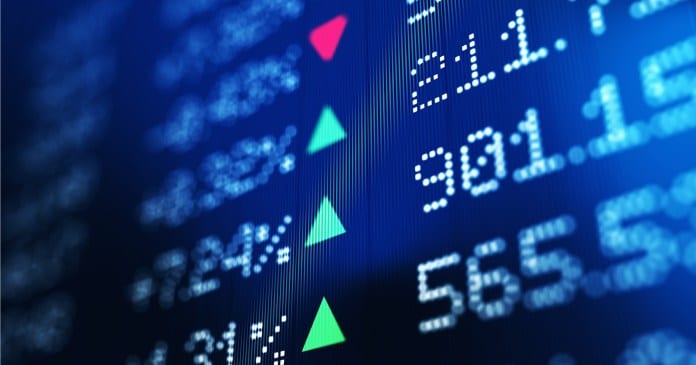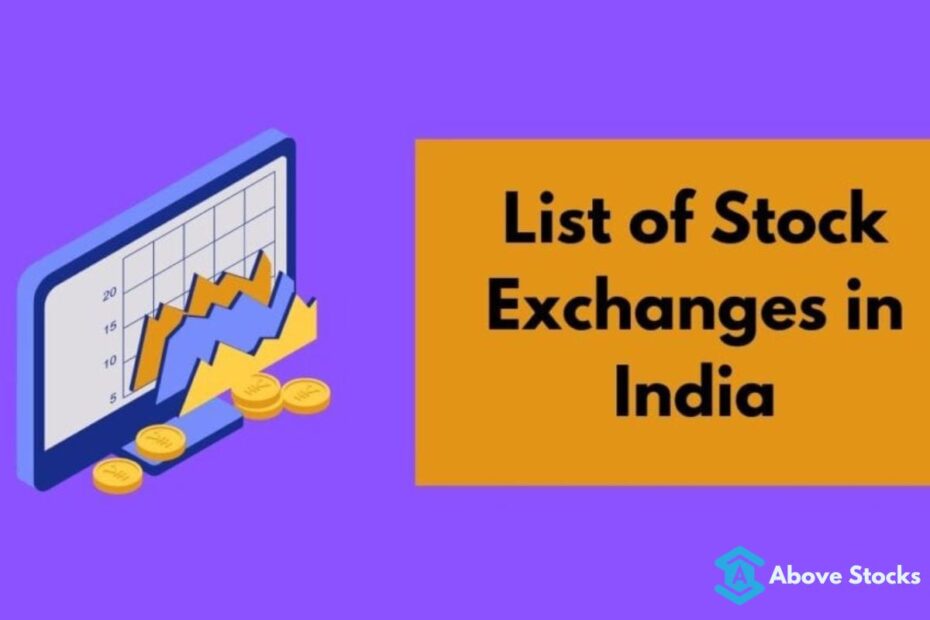A stock exchange is a central place where the shares of companies that trade publicly are purchased and sold. In India, the majority of trading happens in the Bombay Stock Exchange (BSE) and the National Stock Exchange (NSE) which are the oldest and popular exchanges. However, there are 29 stock exchanges in India. Among this, only nine of them are active and listed with the Securities and exchange board of India (SEBI) while the others are no longer in operation.

List of Active Stock Exchanges in India:
1. Bombay Stock Exchange (BSE)
BSE is a stock exchange in India placed at Dalal Street in Mumbai. It is one of the two major stock exchanges of India. BSE is the oldest and even among the first stock exchange in Asia. In the year 1986, BSE launched Sensex, the first index that was used to measure the overall performance of the stock market in India. As of Mar 2019, BSE has an overall market capitalization of over US$2.1 trillion making it one of the largest stock exchange marketplaces in the world.

2. National Stock Exchange (NSE)
NSE is the newest stock exchange of India which came into the picture in the year 1992. NSE was the first to start the advanced electronic trading system which removed the traditional settlement system from trading. Not only that, the stock information which was only accessible by a few significant people could now be made available to everyone. Due to this people could trade from anywhere and more volume of trading started to happen. It is no wonder called the largest stock exchange in terms of volume in India. NSE also introduced the popular benchmark index Nifty 50 in the Indian stock market.
3. Calcutta Stock Exchange (CSE)
CSE is a regional stock exchange (RSE) placed at the Lyons Range building in Kolkata. CSE was incorporated in the year 1908 and hence is the second-largest Stock Exchange in India. The Calcutta Stock Exchange also has an index CSE 40 which is similar to Sensex and Nifty 50. But this is not updated since 2013 and currently, trading also does not take place in CSE. Along with the other regional stock exchanges, the SEBI had also requested the Calcutta Stock Exchange to exit. However, this is still an ongoing battle still open.
4. Metropolitan Stock Exchange (MSE)
The Metropolitan Stock Exchange of India (MSEI) along with the BSE and NSE could trade individual stocks in India. It is one of India’s active stock exchanges recognized by the Securities and Exchange Board of India and is located in Bandra in Mumbai. MSE offers a platform to trade in the Equity, Equity Derivatives, Currency Derivatives and the debt segments of the Indian market.
5. India International Exchange (India INX)
India INX is the first international stock exchange in India which was opened in 2017. It is situated at the International Financial Services Centre (IFSC), GIFT City in Gujarat. It operates on an advanced technological platform with a turn-around time of 4 microseconds. It is claimed to be operational 22 hours a day and six days a week which makes it perfect for Non-Resident Indians (NRIs) and international investors to trade from anywhere worldwide at their preferred timings. India INX offers a platform to trade in the Equity Derivatives, Commodity Derivatives, Currency Derivatives, and the debt segments of the Indian market.
6. NSE IFSC Ltd.
NSE IFSC Limited is a completely owned subsidiary of the National Stock Exchange (NSE). It is situated at the International Financial Services Centre (IFSC), GIFT City in Gujarat. It is similar to India INX and mainly caters to international investors and the NRI community. NSE IFSC Limited performs 16 hours of daily trading with two trading sessions – the first between 8 am and 5 pm and the second between 5.30 pm and 11.30 pm. It mainly trades in Equity Derivatives, Currency Derivatives, Commodity Derivatives and Debt Securities.
7. National Commodity & Derivatives Exchange
The NCDEX was established in the year 2003 in Mumbai. It is a commodities exchange platform mainly dealing with agricultural commodities in India. Some of the leading agricultural commodities like Wheat, Barley and Soybeans are traded on the NCDEX. It primarily performs trading in the Commodity Derivatives segment only.
8. Multi Commodity Exchange of India (MCX)
Multi Commodity Exchange of India Ltd (MCX) is an independent commodity exchange in India. It was established in 2003 in Mumbai. MCX is considered as the largest commodity derivatives exchange in India. In terms of the number of futures contracts that are traded, MCX is among the top global commodity exchanges in the world. MCX introduced the MCX India Commodity Indices (MCX iCOMDEX) series on December 20, 2019. MCX deals in options trading in gold and futures trading in non-ferrous metals, energy, and agricultural commodities like cardamom, cotton, crude palm oil and others.
9. Indian Commodity Exchange
Indian Commodity Exchange Ltd. (ICEX) is headquartered in Mumbai and is an online Commodity Derivative Exchange regulated by SEBI. It offers a trading platform for derivatives of industrial metals, spices, precious metals, oil products and different agricultural products.
Former Stock Exchanges
Due to strict policies set by SEBI, the following stock exchanges are no longer operational –
| S.No | Former Stock Exchanges | Closed in |
| 1 | Ahmedabad Stock Exchange | 2018 |
| 2 | Delhi Stock Exchange | 2017 |
| 3 | Guwahati/Gauhati Stock Exchange | 2015 |
| 4 | Jaipur Stock Exchange | 2015 |
| 5 | Madhya Pradesh Stock Exchange | 2015 |
| 6 | Madras Stock Exchange | 2015 |
| 7 | OTC Exchange of India | 2015 |
| 8 | Pune Stock Exchange | 2015 |
| 9 | UP Stock Exchange | 2015 |
| 10 | Vadodara Stock Exchange | 2015 |
| 11 | Bangalore Stock Exchange | 2014 |
| 12 | Cochin Stock Exchange | 2014 |
| 13 | Inter-connected Stock Exchange of India | 2014 |
| 14 | Ludhiana Stock Exchange | 2014 |
| 15 | Bhubaneshwar Stock Exchange | 2005 |
| 16 | Coimbatore Stock Exchange | 2009 |
| 17 | Hyderabad Stock Exchange | 2007 |
| 18 | Magadh Stock Exchange | 2007 |
| 19 | Mangalore Stock Exchange | 2004 |
| 20 | Trivandrum Stock Exchange | 2010 |
Overall, BSE and NSE are the most popular stock exchanges in India as they operate at a national level. Only a limited fraction of the Indian population invests in the Indian stock market. However, it is likely that more Indians will start investing in the coming years.
